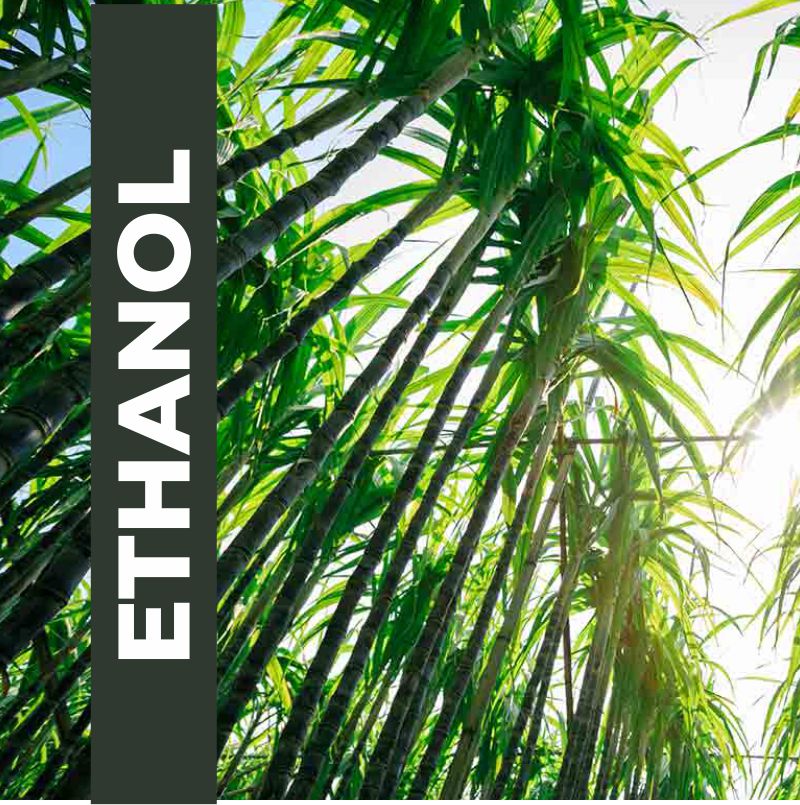Cellulosic Ethanol Market revenue to cross USD 90 Billion by 2035, says Research Nester

New York, Aug. 03, 2023 (GLOBE NEWSWIRE) — The global cellulosic ethanol market size is projected to expand at ~37% CAGR between 2023 and 2035. The market is expected to garner a revenue of USD 90 billion by the end of 2035, up from a revenue of ~USD 7 billion in the year 2022. Increasing energy demand is expected to increase the use of cellulosic ethanol worldwide. Because ethanol is considered both a fuel and a gasoline additive, cellulosic ethanol is critical to maintaining energy security. One of the key factors driving the expansion of the global cellulosic ethanol market is cellulosic ethanol’s notable advantage that it is made from non-food crops and residual biomass, making it eco-friendly. This advantage allays growing concerns about food insecurity and biodiversity while improving energy efficiency and attracting key players to invest in the sector.
Request Free Sample Copy of this Report @ https://www.researchnester.com/sample-request-5048
Governments around the world are implementing policies and incentives to promote the use of biofuels, such as cellulosic ethanol. For example, the U.S. government has set a goal of producing 36 billion gallons of cellulosic ethanol by 2022. There is a growing global demand for renewable and sustainable energy sources in order to reduce reliance on fossil fuels and mitigate climate change. Cellulosic ethanol is a renewable and sustainable biofuel that can be produced from a variety of biomass feedstocks, including agricultural residues, forestry residues, and municipal solid waste.
Cellulosic Ethanol Market: Key Takeaways
- Market in North America to propel highest growth
- The energy crop segment to garner the highest growth
- Market in Asia Pacific to grow at a highest rate
Increasing Renewable and Sustainable Energy across the Globe to Boost Market Growth
Cellulosic ethanol is the second generation biofuel made from various raw materials. Therefore, with the increasing focus on renewable energy generation, the demand for cellulosic ethanol is expected to increase in the coming years. The International Energy Agency (IEA) said renewable electricity generation increased by nearly 7% in 2021, an increase of 522 TWh. Cellulosic ethanol is made primarily from cellulosic feedstocks such as grass, wood, crop residues, and other starch-based plants. Therefore, it is considered that with the development of the agricultural sector, by providing sufficient raw materials, there will be profitable opportunities for the global market value of cellulosic ethanol.
Policy makers advocate the use of cellulosic ethanol because emissions are significantly reduced by using cellulosic ethanol compared to using petroleum-based fuels for transportation, power, heat, and other purposes. The National Oceanic and Atmospheric Administration has stated that the Earth’s temperature has risen by 2°F since 1880 and that the rate of global warming has doubled since then.
Cellulosic Ethanol Market: Regional Overview
The global cellulosic ethanol market is segmented into five major regions including North America, Europe, Asia Pacific, Latin America, and the Middle East and Africa region.
Expanding demand for renewable and sustainable energy sources to Drive the Market Growth in North America Region
The cellulosic ethanol market in North America region is estimated to garner the largest revenue by the end of 2035. There is a growing global demand for renewable and sustainable energy sources in order to reduce reliance on fossil fuels and mitigate climate change. Cellulosic ethanol is a renewable and sustainable biofuel that can be produced from a variety of biomass feedstocks, including agricultural residues, forestry residues, and municipal solid waste. Governments around the world are implementing policies and incentives to promote the use of biofuels, such as cellulosic ethanol. For example, the U.S. government has set a goal of producing 36 billion gallons of cellulosic ethanol by 2022.
There have been significant technological advancements in the production of cellulosic ethanol in recent years. These advancements have made it more cost-effective to produce cellulosic ethanol, and have also improved the efficiency of the production process. There is a growing awareness of the environmental impact of fossil fuels, and this is driving demand for cleaner-burning alternatives, such as cellulosic ethanol. Cellulosic ethanol can reduce greenhouse gas emissions by up to 85% compared to gasoline.
Request Free Sample Copy of this Report @ https://www.researchnester.com/sample-request-5048
Growing Government policies and incentives to Propel the Growth in the Asia Pacific Region
The Asia Pacific cellulosic ethanol market region is estimated to garner the highest CAGR by the end of 2035. There is a growing global demand for renewable and sustainable energy sources in order to reduce reliance on fossil fuels and mitigate climate change. Cellulosic ethanol is a renewable and sustainable biofuel that can be produced from a variety of biomass feedstocks, including agricultural residues, forestry residues, and municipal solid waste.
Governments around the world are implementing policies and incentives to promote the use of biofuels, such as cellulosic ethanol. For example, the Indian government has set a goal of producing 2 billion gallons of cellulosic ethanol by 2025. There have been significant technological advancements in the production of cellulosic ethanol in recent years. These advancements have made it more cost-effective to produce cellulosic ethanol, and have also improved the efficiency of the production process. There is a growing awareness of the environmental impact of fossil fuels, and this is driving demand for cleaner-burning alternatives, such as cellulosic ethanol.
Cellulosic Ethanol, Segmentation by Feedstock
- Energy Crop
- Agricultural Waste
- Municipal Solid Waste
- Forest Residue
Amongst these three segments, the energy crop segment is anticipated to hold the largest share over the forecast period. Governments around the world are implementing policies and incentives to promote the use of biofuels, such as energy crops. For example, the European Union has set a target of 10% renewable energy in its transport sector by 2020. There is a growing global demand for renewable energy in order to reduce reliance on fossil fuels and mitigate climate change.
Energy crops are a renewable source of energy that can be used to produce bioethanol, biodiesel, and other biofuels. There have been significant technological advancements in the production of energy crops in recent years. These advancements have made it more cost-effective to produce energy crops, and have also improved the efficiency of the production process. There is a growing awareness of the environmental impact of fossil fuels, and this is driving demand for cleaner-burning alternatives, such as energy crops. Energy crops can reduce greenhouse gas emissions by up to 80% compared to fossil fuels.
Cellulosic Ethanol, Segmentation by Application
- Gasoline
- Detergent
Amongst these two segments, the gasoline segment is anticipated to hold a significant share over the forecast period. The transportation sector is the largest consumer of gasoline, and is expected to continue to grow in the coming years. This is due to the increasing population and economic growth, which will lead to more people owning and using cars.
The world is becoming increasingly urbanized, and this is also driving the demand for gasoline. This is because people in urban areas tend to rely more on cars for transportation than people in rural areas. Some governments are implementing policies and incentives to promote the use of gasoline, such as tax breaks and subsidies. This is done to stimulate the economy and create jobs. The average price of gasoline in the United States was USD 3.50 per gallon in the year 2021. There have been significant technological advancements in the production and distribution of gasoline in recent years. These advancements have made it more efficient to produce and transport gasoline, which has led to lower prices.
Cellulosic Ethanol, Segmentation by Process
- Dry Grind
- Wet Mill
Purchase Copy of this Report @ https://www.researchnester.com/purchage/purchase_product.php?token=5048?
Cellulosic Ethanol, Segmentation by End-Use
- Transportation
- Power Generation
- Heating
Few of the well-known market leaders in the global cellulosic ethanol market that are profiled by Research Nester are Clariant International Ltd., Novozymes, Aemetis, Inc., ENERKEM Inc., Iogen Corporation, Praj Industries Limited, BlueFire Renewables, BP p.l.c., Clariant AG, The Dow Chemical Company, and other key market players.
Recent Development in the Market
- Clariant International Ltd. announced that it has successfully produced the first commercial cellulosic ethanol from agricultural residues at its Sunliquid manufacturing facility. The company now aims to produce approximately 50,000 tons of cellulosic ethanol per year.
- Novozymes has launched two powerful new yeast and fiber innovations aimed at significantly increasing the efficiency of its ethanol plant and addressing other production challenges.
About Research Nester
Research Nester is a one-stop service provider with a client base in more than 50 countries, leading in strategic market research and consulting with an unbiased and unparalleled approach towards helping global industrial players, conglomerates and executives for their future investment while avoiding forthcoming uncertainties. With an out-of-the-box mindset to produce statistical and analytical market research reports, we provide strategic consulting so that our clients can make wise business decisions with clarity while strategizing and planning for their forthcoming needs and succeed in achieving their future endeavors. We believe every business can expand to its new horizon, provided a right guidance at a right time is available through strategic minds.















